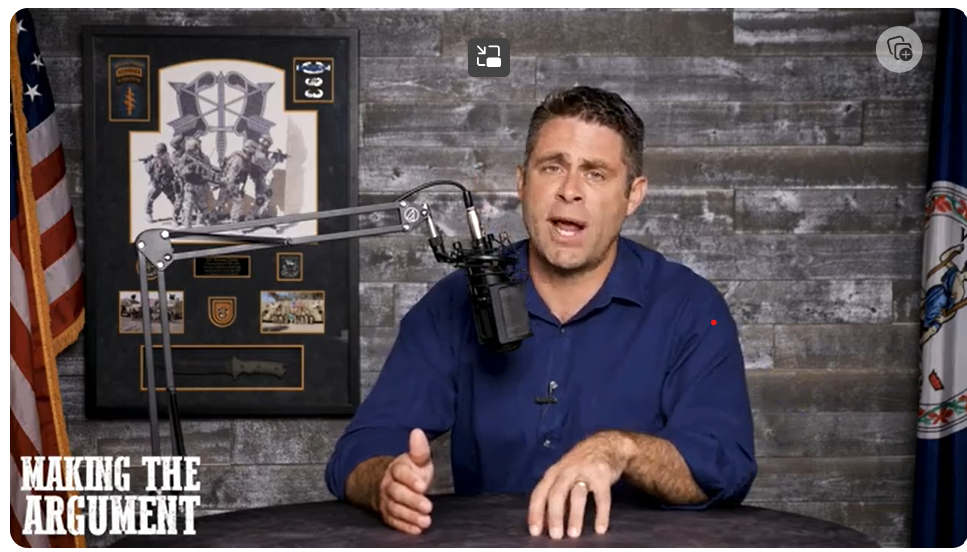
Nick Freitas, a Green Beret combat veteran who has established himself as a leading proponent of conservative policies and thought throughout the USA, hosts a podcast show called Making the Argument, or MTA. In this podcast, Nick deconstructs the left’s arguments and makes the case for the conservative values and principles that form the foundation of the conservative movement by examining contemporary events, legislation, and political philosophies. His 26ep podcast tackled the issue of Equality, Affordability, and Accessibility in healthcare.
The podcast is a valuable impulse for my research in designing a healthcare app for underserved communities. Let’s break down the key takeaways and how they connect to my research work:
- Healthcare’s Significance: Nick emphasized the importance of healthcare, which is a universal need. This message is crucial for my project, as it underscores the significance of the healthcare app I am planning to designing for underserved populations.
- Government vs. Free Market: Nick discussed the debate about government control in healthcare. While this may not directly relate to my research in providing digital solution to underserved communities, it highlights the significance of understanding the healthcare system’s structure, which can influence the app’s design and functionality.
- Quality and Accessibility: Nick stressed the need for quality and affordable healthcare. This aligns with my project’s goal to improve healthcare accessibility for underserved populations. It highlights that the primary focus should be on delivering quality care efficiently.
- Wait Times: Nick discussed the issue of long wait times in countries with government-controlled healthcare systems. This is seemingly the case in most west African countries. This insight informs on an important feature the app could incorporate by emphasizing timely access to healthcare services, which is crucial for underserved communities.
- Government Regulations: Nick pointed out the impact of government regulations on healthcare in the U.S. This is a reminder that, in my app design, you should consider how to streamline processes and reduce bureaucracy, making healthcare more efficient and accessible.
- Policy Analysis: Nick’s analysis of healthcare policies is valuable. It suggests that while I am designing a healthcare app, I better also explore how government policies may affect the target populations and consider policy-related solutions to improve healthcare access.
In summary, Nick’s podcast reinforces the importance of quality, accessibility, and affordability in healthcare. It emphasizes the need to understand the existing healthcare landscape and policies. This information served as an impulse for my research and design work, prompting me to consider the real-world implications of healthcare policies on the app’s functionality and how it can address the unique challenges faced by underserved communities.
Sources:
- https://www.youtube.com/watch?v=tTkHPrF3wTQ
- The future of healthcare is sustainable: how e-health, robotics, and miot can help tackle the climate crisis – Institute of Design & Communication (netornot.at)
- Researching and Developing a Prototype for Sustainable Healthcare app in Benin – Institute of Design & Communication (netornot.at)